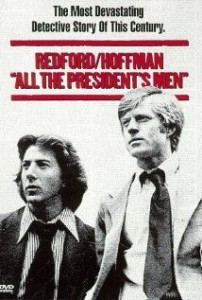The Scarlet and the Black
Posted on December 13, 2002 at 5:17 am
Plot: Gregory Peck plays Monsignor Hugh O’Flaherty in this true story of WWII Rome. The Vatican had diplomatic neutrality, so that no one within its borders could be arrested. O’Flaherty used the Vatican as a base of operations to save thousands of Allied POWs, in a long, elaborate, and deadly game of cat and mouse with German Colonel Herbert Kappler (Christopher Plummer).
As Italy is falling to the Allies, Kappler knows the war is over. He seeks out O’Flaherty, his bitterest enemy, to ask a favor: to draw on the same resources he used to help the POWs escape to get Kappler’s family to Switzerland. Kappler does not find out until he is being interrogated by the Allies that his family is safe, and he protects O’Flaherty from charges of collaboration by refusing to give any information about his operation, even though it would have shortened his sentence.
Discussion: This movie presents us with an assortment of characters who each try to do what they believe is best to protect the values they care about. O’Flaherty and his colleagues decide that all they can do is rescue and protect; they cannot undertake or even aid anti-German activities like espionage or sabotage. A fellow priest who does become involved in these activities is captured and executed. Kappler genuinely loves his family, and loves Rome. His sense of honor is clear in the sacrifice he makes to protect O’Flaherty. He is brutal only in capitulation to the orders of his superiors. The Pope preserves what politicians call “deniability” by not permitting himself to know much about what O’Flaherty is doing. Though he warns that he will not be able to protect him when the Germans come, the Pope refuses to turn him over to them. The British emissary says that he cannot help, even though the men are his own soldiers, explaining that “My strictest duty is to do nothing which might compromise the neutrality of the Vatican State or His Holiness the Pope.” His aide, however, is one of the most important participants in O’Flaherty’s efforts. This is an outstanding story of true personal moral courage and redemption, with a conclusion that is deeply moving.
Questions for Kids:
· Were O’Flaherty and Kappler alike in any ways? How?
· Why wouldn’t O’Flaherty do more to fight the Germans?
· Why did O’Flaherty help Kappler’s family?
· Were you surprised by the ending?
Connections: Plummer appeared as a man who fled from the Nazis in “The Sound of Music,” another true story, and Peck appeared as a Nazi in the fantasy “The Boys From Brazil.” O’Flaherty’s decision to help the prisoners but not to enter into the fight is similar to that made by Jess in “Friendly Persuasion.”

